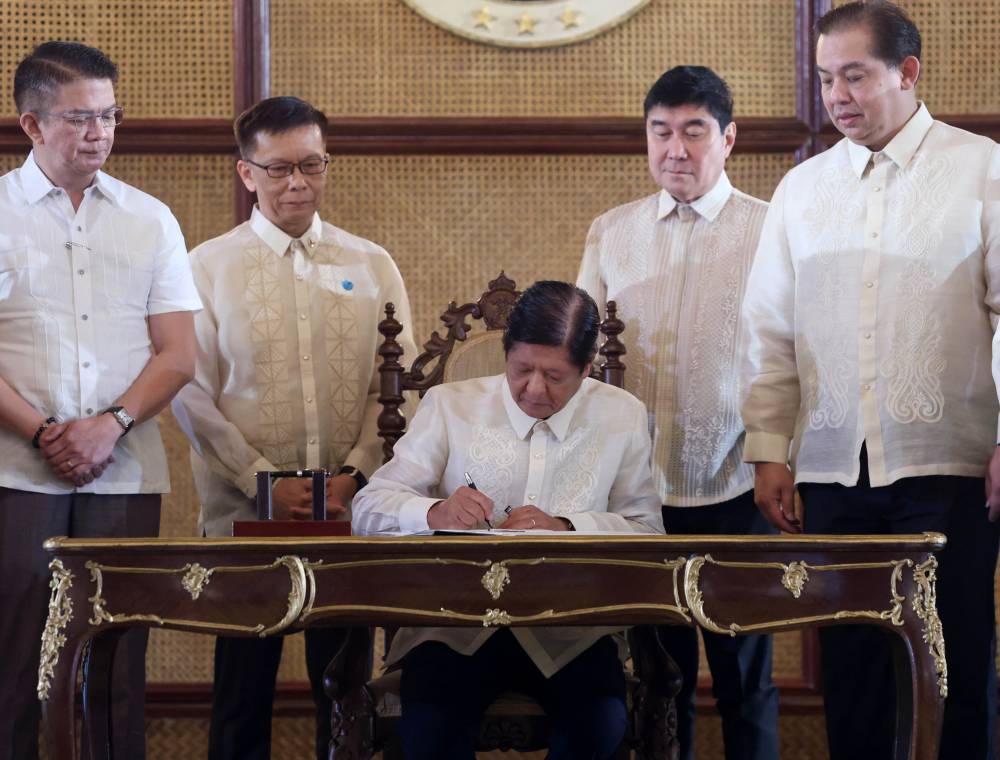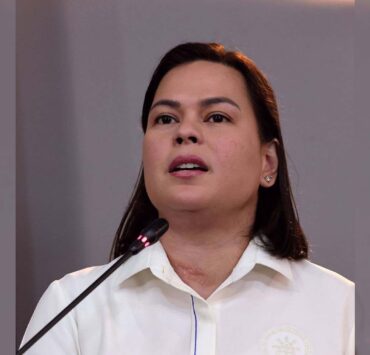New law’s IRR details PH seafarers’ rights, employers’ duties

More than three months after the enactment of Republic Act 12021, or the Magna Carta of Filipino Seafarers, the government has released the more detailed legal framework for its goal of improving the working conditions, benefits and competence of one of the country’s top labor exports.
President Marcos on Wednesday witnessed the signing of RA 12021’s implementing rules and regulations (IRR) by Migrant Workers Secretary Hans Leo Cacdac and Maritime Industry Authority (Marina) Administrator Sonia Malaluan in Malacañang.
Mr. Marcos said the issuance of the IRR “reinforces our commitment to ensuring the welfare of our seafarers,” especially since they are among the most sought-after in the global shipping industry.
22 key provisions
“Beyond compliance with international standards, these efforts also secure the future of our seafarers in a rapidly evolving industry. These provisions are part of a holistic framework designed to uplift the lives of Filipino seafarers and their families,” the President said.
In his message on the IRR signing on Wednesday, Marcos ordered the Department of Transportation, Marina, Department of Labor and Employment, Department of Migrant Workers and other government agencies to ensure strict compliance with the law so that seafarers can “maximize the benefits.’’
Cacdac said the signing of the IRR is “not merely a procedural step” but a “testament to our collective commitment to uplift, protect and empower the life blood of global shipping— our Filipino seafarers.”
According to Malaluan, the IRR contains 22 main provisions relating to promotion of seafarers’ rights and welfare, gender equality and inclusion, advance maritime education and training, and accountability on the part of shipowners, manning agencies, and other industry stakeholders.
“This IRR … a promise to protect our seafarers from exploitation, a promise to provide them with opportunities for growth, a promise to secure their rightful place as key contributors of the maritime industry,” she said.
One of the provisions, for example, codify the Filipino seafarers’ rights based on international laws, standards and conventions. These include their right to information and access to work records, safe passage and travel, consultation and free legal representation, and medical attention; right against discrimination, harassment and bullying; and right to vote in national elections.
For employers
Others highlighted women’s participation in the maritime industry, requiring shipowners, manning agencies, and maritime training institutions to have policies on gender and development, equal career opportunities, and appropriate working and living conditions.
As to employment contracts, the IRR requires the inclusion of specific terms regarding working hours, rest periods or leaves, job descriptions, compensation and working conditions.
All Filipino seafarers must be enrolled in and receive benefits from the Overseas Workers Welfare Administration, Social Security System, Employees’ Compensation and State Insurance Fund, Philippine Health Insurance Corp. and Home Development Mutual Fund.
Employers are obligated to cover repatriation costs and provide medical care in the event of a seafarer’s illness, injury, or completion of their contract. The law also establishes a welfare fund for distressed seafarers.
Shipowners and manning agencies will establish helplines and grievance mechanisms for seafarers who experience harassment and bullying.
Early labor challenge
In 2022, the precarious international standing of the Philippine seafaring sector was among the first labor-related challenges faced by the Marcos administration.
At the time, some 50,000 Filipino seafarers working in European vessels faced the risk of losing their jobs due to the continued failure of the country’s training and accreditation system for seafarers to pass the evaluation of the European Maritime Safety Agency since 2006.
Mr. Marcos then vowed that the country would address its deficiencies in seafarer education and training, as raised by the European Commission (EC).
In February the following year, the EC said it would recognize the certificates of Filipino seafarers and noted the Philippines’ serious efforts in improving its compliance with the International Convention on Standards of Training, Certification and Watchkeeping for Seafarers.

















